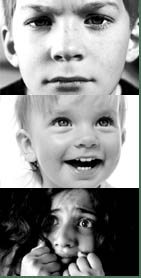|
|

| |||||
| Our
research is focused on developing a deeper understanding of emotion
processing and emotion regulation and how this may relate to understanding
normative behavior as well as the development and persistence of psychopathology.
Most contemporary theories of emotion suggest that emotions evolved
to help us respond to the world around us, including potential threats
in the environment. As such, emotion responses are central in our interactions
with others and our ability to manage the inevitable stresses of life.
Our research focuses primarily on examining emotion regulatory strategies
in populations in the midst of extremely highly stressful events or
circumstances (e.g. bereavement, chronic illness) as well as populations
struggling with severe psychopathology (e.g. Mood and Anxiety Disorders,
Borderline Personality Disorder). By attempting to understand the underlying
components of both implicit (or automatic) emotion regulatory strategies
as well as effortful emotion regulatory strategies (e.g. suppression)
we hope to be able pinpoint early markers of pathology as well as the
features that help contribute to the persistence of mental illness. In order to meet this goal, we often conduct experimental research in the laboratory as well as conduct investigations using real-world techniques designed to capture life as it is lived. Our investigations of emotion processing and emotion regulation frequently involve multiple measures of emotion that include psycho-physiological responses, facial behavior, and affective self-report in order to begin to understand what is a complex multi-dimensional response system. If you are interested in joining our lab, there are many possibilities. Please contact us for more information. |
||||||